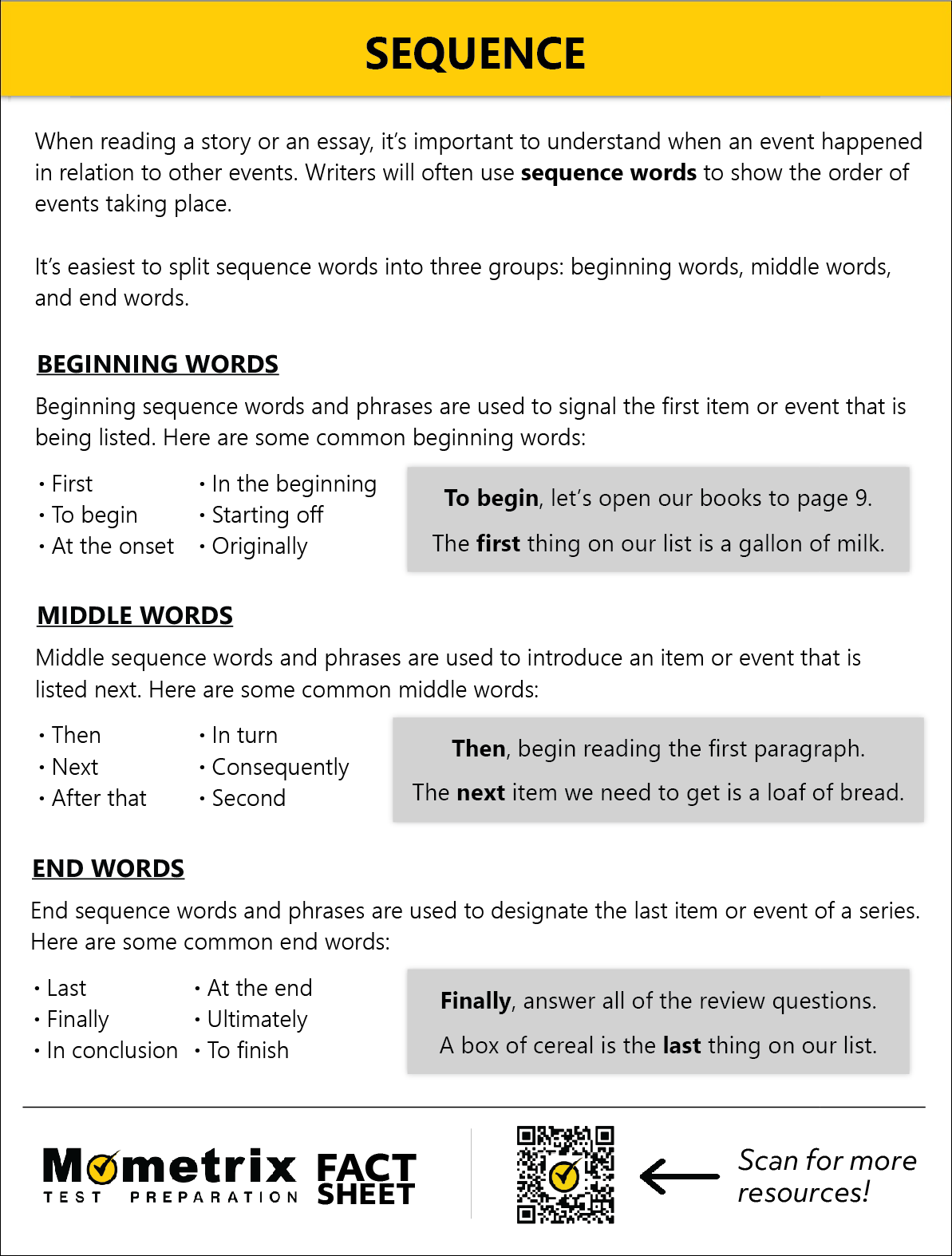
Hi, and welcome to this video about sequence!
When we read a story or an essay, it’s important to understand when an event happened in relation to other events. Writers will often use sequence words to show the order of events taking place. A few examples of sequence words include first, then, and next.
Word Sequence Examples
Example 1
Let’s look at a sentence that includes some sequence words:
Here, we see two sequence words. The word first shows us that the trip to the store occurred before he went home. The word then also serves as a sequence word, because it confirms that he went home after she went to the store.
Example 2
Let’s look at another example:
In this example, we don’t have any numerical sequence words to help us figure out the order, so we have to rely on context to identify the sequence word used here. The word before is the sequence word in this sentence because it tells us when she made breakfast.
Sometimes sequence words can be a little more obscure, so using context clues is vital to determining the order in which something happened.
Example 3
Let’s look at another example:
Until is our first sequence word; it tells us that because “he got paid” that something was able to occur afterwards. That something was buying a birthday present. The word finally is our second sequence word. It shows us that after “he got paid” and after “he was able to buy the birthday present”, he eventually left for the party. Because of these sequence words, we know the order in which everything happened.
Example 4
Now let’s try one last example:
This sentence is another example of how context can help determine the chronological sequence of events. Here, the sequence phrase in advance is at the end of the sentence. It tells us that the action it refers to, “making sure the oven was off,” happened prior to something else, which, in this case, was leaving to “walk the dog.”
As you can see, sequence words are useful and necessary tools to help organize thoughts and relate the chronological order of a story or series of events in a clear way.
Review
Here’s a quick practice problem before we go:
Which of the following is an example of a sequence word?
- After
- Would
- Initially
- For
Thanks for watching, and happy studying!

